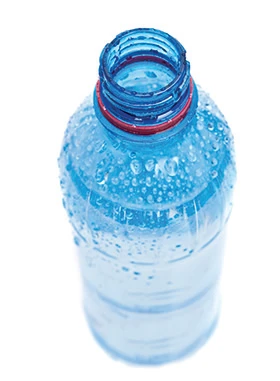
 thinkstockphotos.com |
Garden centers are very unique places to visit, and are also special places to work. While some people look at garden centers as a place to relax and have down time, we don’t always take a moment to enjoy what everyone else enjoys so much about visiting our stores. Without taking time and “smelling the roses,” employees can become a bit on edge and less than relaxed when it comes down to performing the tasks that need to be done. This can result in either a poor attitude in sales staff, rushed performance from those in charge of making orders and perhaps a short fuse when it comes down to dealing with coworkers. Don’t let this summer catch you or your employees off guard. Make sure you remind everyone why they’re lucky to be working at an IGC and not at a big box store or any other retail outlet.
Take time to remind
It might be hard for you to do for yourself, but it’ll be simple for you to remind your employees that flowers and nature in general is relaxing. What better way to spend a day than surrounded by specimens of beauty and botanical wonders? The fragrances and sights, if reminded of them, should be enough to lift the spirit of that sagging employee.
Remind them of special plants, such as a particular herb that smells sensational, a rose that has a unique color, or even a fountain with a relaxing sound. Casually mentioning things like this will subtly remind your employees that they’re in a position most people don’t have - a job surrounded by relaxation and nature. Remind them how many people are stuck in cubicles and in offices that can’t even see the outside world.
Use a personal touch
There are always a few people on any staff who are going to rub others the wrong way. It’s your job as a manager/owner/coworker to find ways to adapt to your working conditions. If you’re a creative sort working with a by the books sort of person, try and find a middle ground. Never try to subject those with black and white thinking to your broad color spectrum.
Invest a little bit of time with coworkers and find what that middle ground might be, such having the same taste in movies, art or even music. When things get tense between you and a coworker, you can always fall back to the thought pattern that even though you’re not getting along at the moment, you do have two things in common: a common interest and that you work at the same place.
Harmony in daily life
Summertime can either bring out the best or the worst in people — and the temperature doesn’t help. There are people who thrive in the heat, and people who have absolutely no tolerance to heat. Make sure you have a cool spot to sit to help your workers escape the high temperatures. Air conditioning should always be available, but it cannot become a hiding hole for those that fear the heat.
Make sure you keep an eye out so that those that love heat don’t end up doing more than their share of work because others are basking in the air conditioning. Create a balance by keeping the air conditioning at no lower than 80 degrees. This will create a moderate temperature for cooling off, but not so cold that it will shock your employees when asked to go out into the heat.
Don’t let your well organized ducks get out of line this summer just because the season has changed. Keep them in line, keep them happy, and they’ll stay productive. Embrace the summer — we’ve earned it —but don’t get heat stroke!
|
Beat the Heat Exposure to extreme heat can result in occupational illnesses like heat stroke, heat exhaustion, heat cramps or heat rashes, and increase the risk of on-the-job injuries. When workers get too hot or too thirsty, they become irritable, impatient and careless — three traits that render them accident-prone. The major cause of heat stress is dehydration. Energetic activity on hot days can cause the body to lose 1-1½ quarts of fluid per hour, according to The National Institute for Occupational Safety and Health. If this continues for a few hours, it’s possible to lose as much as 6 percent of your body weight. A loss of 2 to 3 percent of your body weight decreases blood circulation, which leads to extreme discomfort and thirst, along with an increase in body temperature and a rapid pulse. At this point, symptoms of heat exhaustion begin to appear: dizziness, headaches, excessive sweating and weakness. If you lose 3 to 6 percent of your weight, you are, or are near, suffering a heat stroke: the body stops perspiring, the body temperature increases rapidly, and convulsions, unconsciousness and death become very real possibilities. To protect workers from heat stress:
For more: The Center for Disease Control, http://www.cdc.gov/niosh/topics/heatstress |

Explore the July 2013 Issue
Check out more from this issue and find your next story to read.
Latest from Garden Center
- America in Bloom announces 2026 program launch and celebrates 25 years of growing vibrant communities
- AmericanHort launches HortCred to advance skills development in the green industry
- Oasis Grower Solutions announces new northeast territory sales manager
- Amanda Solliday named senior manager of Sustainabloom
- New McCarthy-Family Flowers Legacy Fund supports multi-generational retail florists
- Monrovia releases new retail program, Landscape Legends, to mark 100th anniversary
- USDA to conduct 2025 Organic Survey
- Save the date for the 78th Santa Barbara International Orchid Show





